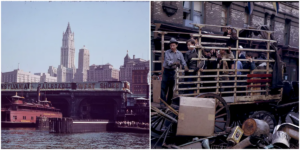
 Step into a time machine through a series of vivid Kodachrome photographs that offer an enthralling glimpse into the bygone streets of Manhattan during the early 1940s.
Step into a time machine through a series of vivid Kodachrome photographs that offer an enthralling glimpse into the bygone streets of Manhattan during the early 1940s.
These colorful snapshots serve as portals to a city pulsating with life, painting a captivating picture of a metropolis on the cusp of change.
A bustling Fifth Avenue teems with stylish pedestrians, donning the fashions of yesteryears. Vintage automobiles navigate the streets, their polished surfaces reflecting the vibrant signs and architecture that defined the cityscape.
Street vendors peddle their wares, children engage in impromptu games, and workers labor with a determined purpose.
Each photograph encapsulates a microcosm of existence, immortalizing the untold stories and forgotten moments of a long-gone time.
The photos shown here were taken by Charles Weever Cushman. A keen amateur photographer and Indiana University alumnus, Cushman took approximately 15 thousand Kodachrome color slides from 1938 to 1969, during which time he extensively documented the United States as well as other countries.
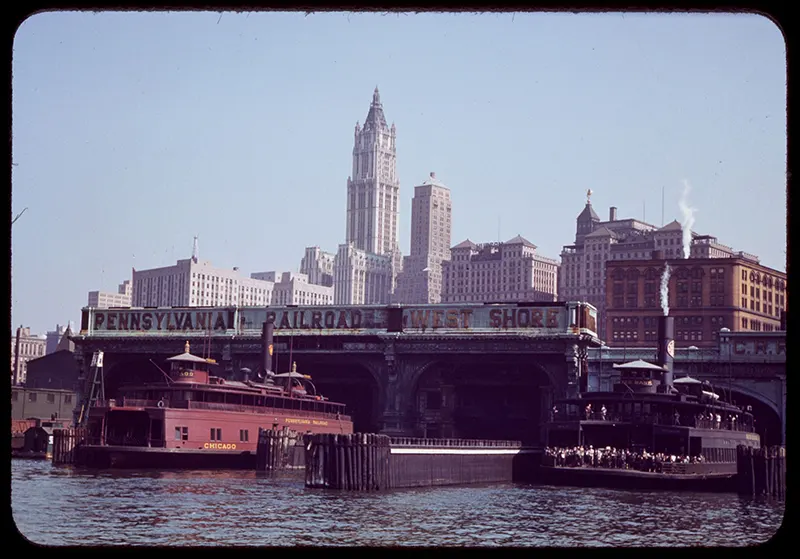
Approaching Liberty St. ferry, New York City.
Kodachrome was a type of color reversal film that was widely recognized for its vibrant and enduring color reproduction.
It was introduced by Kodak in 1935 and quickly became a popular choice for both amateur and professional photographers.
Unlike many other color films of its time, Kodachrome produced color images directly on the film itself, rather than using a color negative that needed to be developed into a positive print.
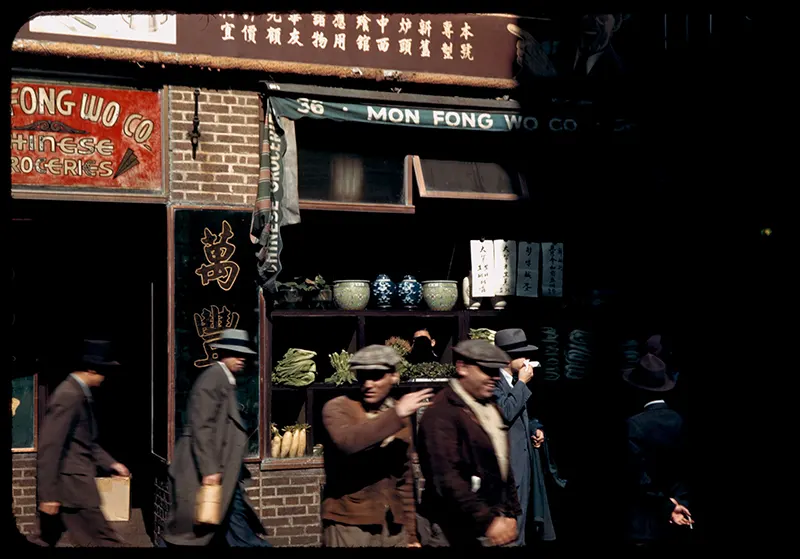
Chinese store windows, New York, 1942.
Amidst the challenges, the urban rhythm of Manhattan persisted. Each neighborhood had its own distinct character and offered a mosaic of experiences.
Markets buzzed with activity as residents purchased provisions for their families.
Local merchants, artisans, and businesses formed the backbone of the community, serving as familiar faces in the midst of a rapidly changing world.
The city’s rich cultural scene continued to flourish even in the midst of wartime challenges.
Broadway theaters offered an escape from reality, with dazzling performances that transported audiences to distant lands and eras. Nightclubs, jazz bars, and entertainment venues provided avenues for relaxation and camaraderie.
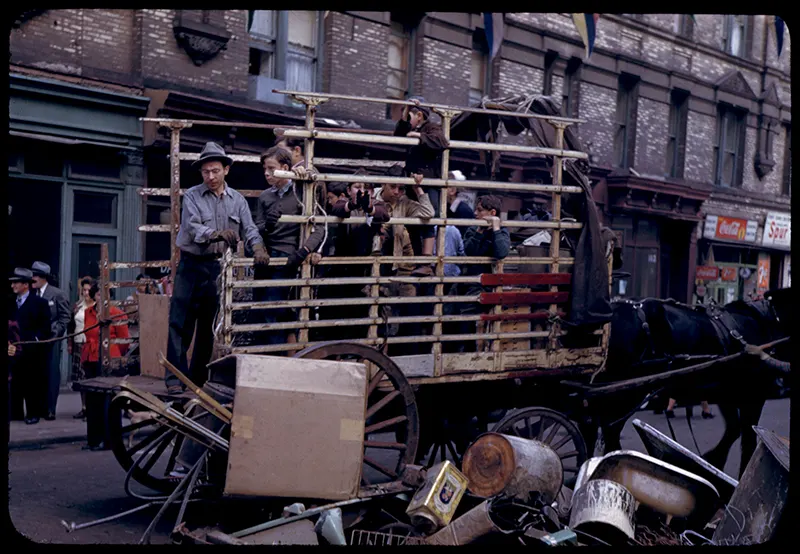
Collecting the salvage on lower East Side, 1942.

Crowd gathers during Salvage collection in Lower East Side, 1942.
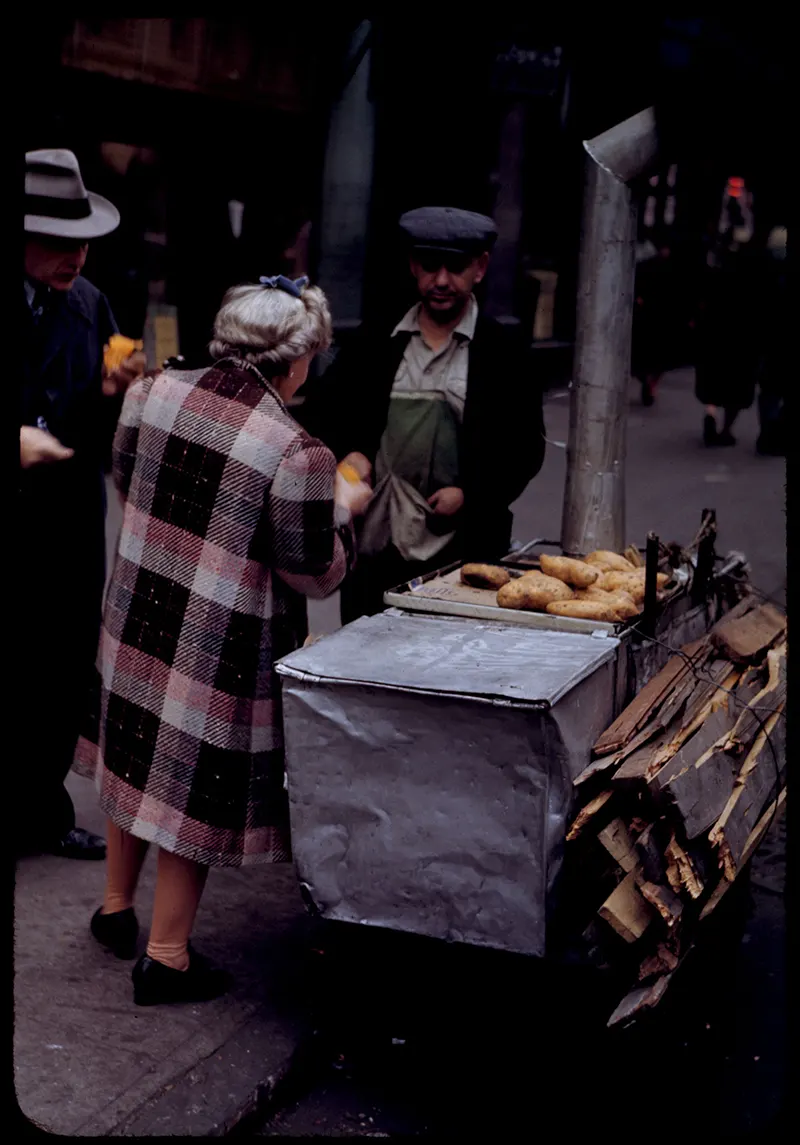
Hot Sweet Potatoes, 1942.
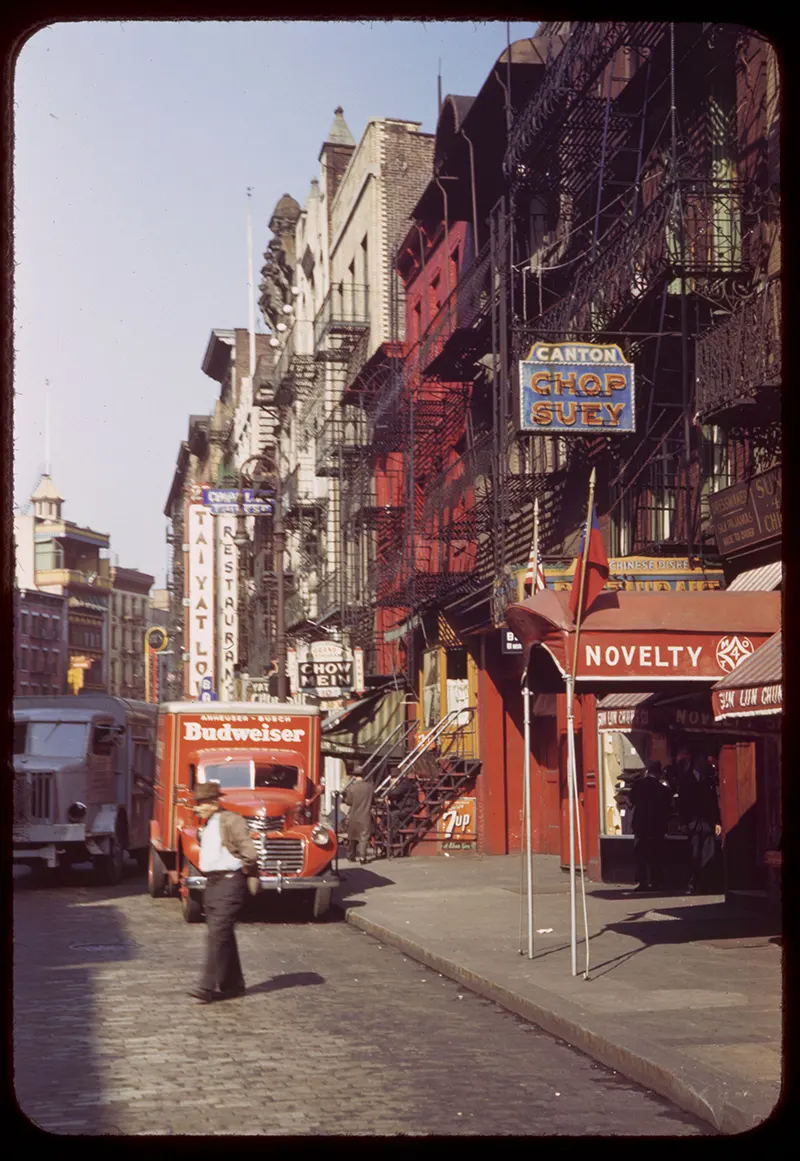
In N.Y.’s Chinatown 1942.

Lower East Side, 1942.

Lower East Side Corner Broome St. Baruch Pl. Saturday afternoon.
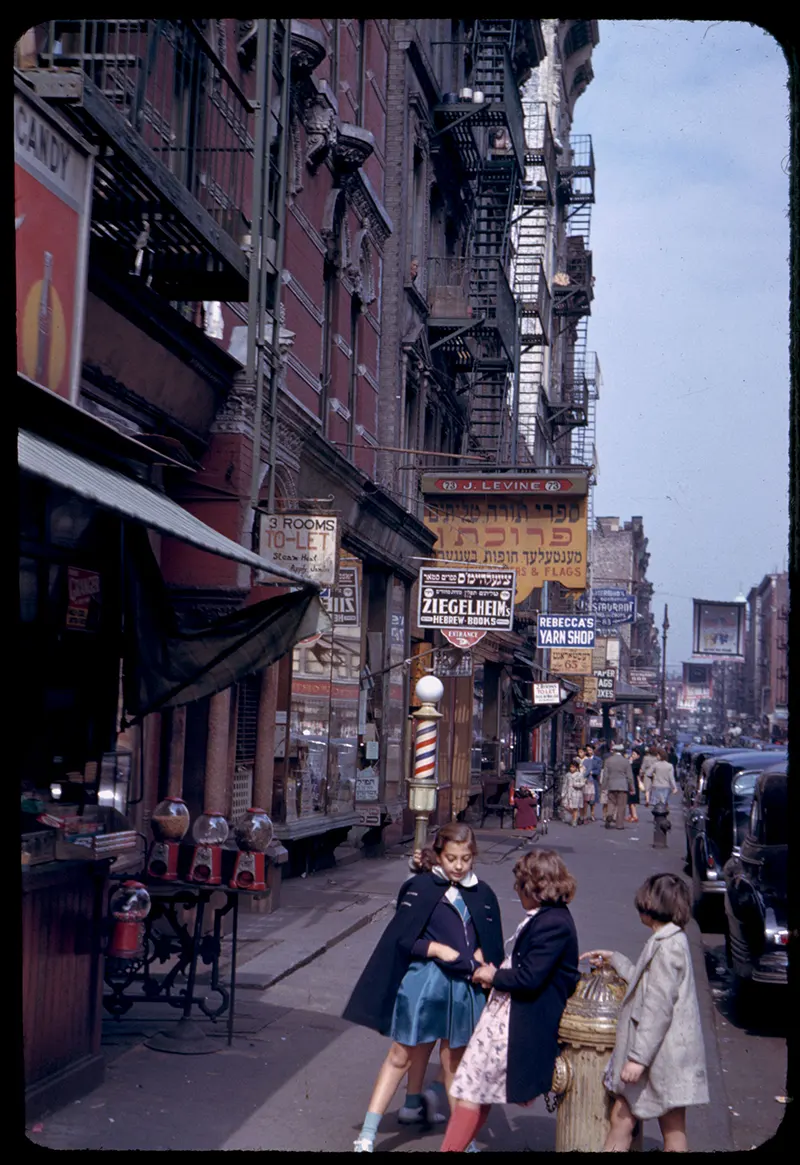
Lower Manhattan, 1942.
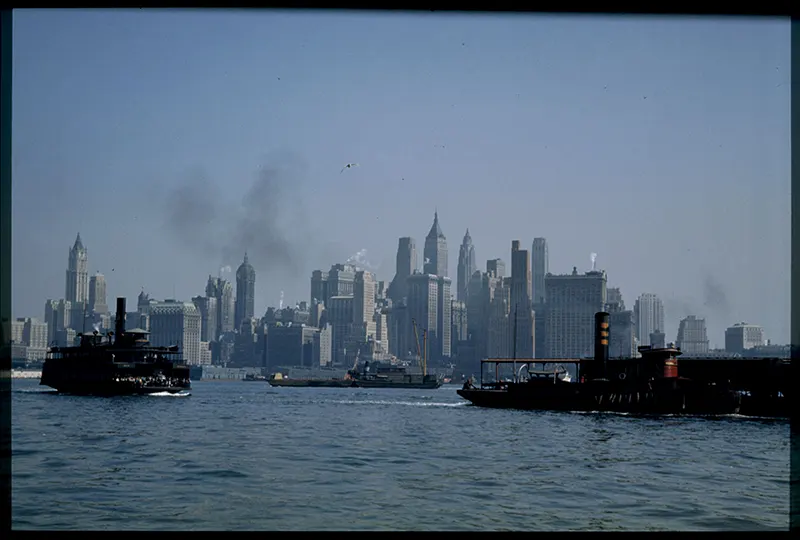
Lower Manhattan from Jersey City ferry boat, 1941.


McSorley’s Old Ale House. E. 7th St. 1942.
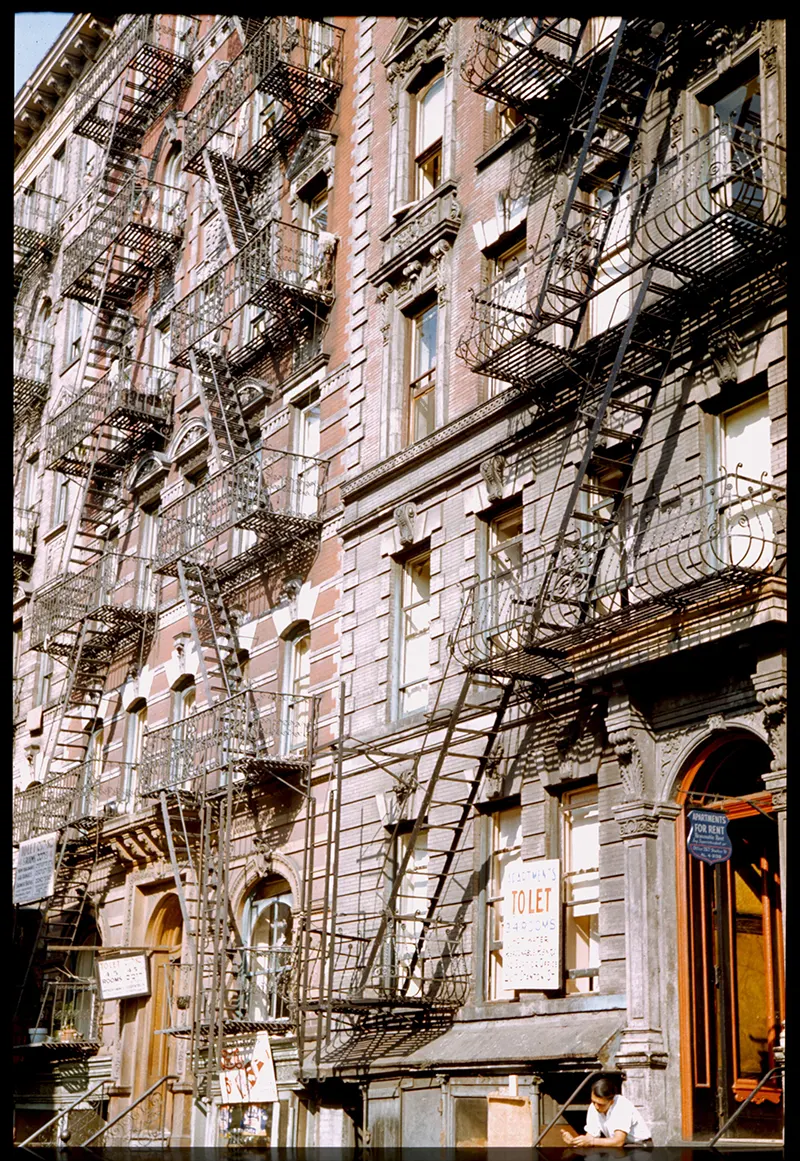
New York City Lower East Side Flat bldgs. Clinton St. 1941.
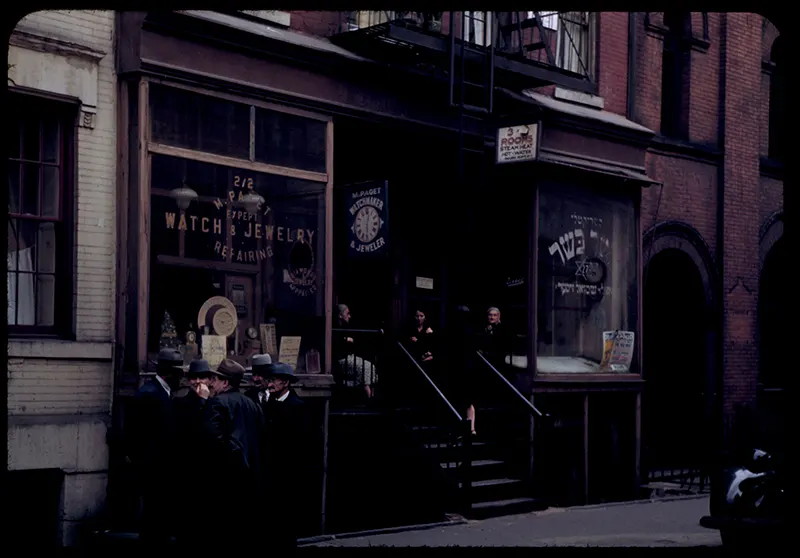

Old lady reads the Sunday paper. Lower East Side NYC, 1942.

On New York’s Lower East Side.

Portable soft drink stand at Bowling Green, 1942.
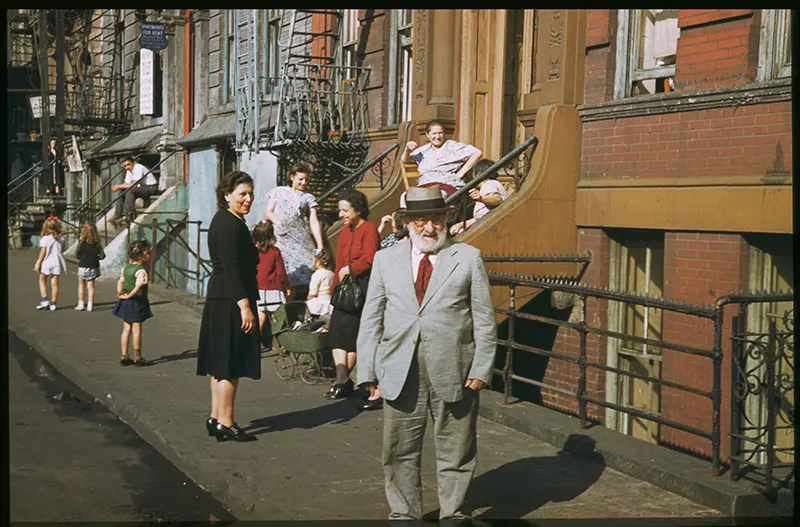
Residents of lower Clinton St near East river Saturday afternoon, 1941.
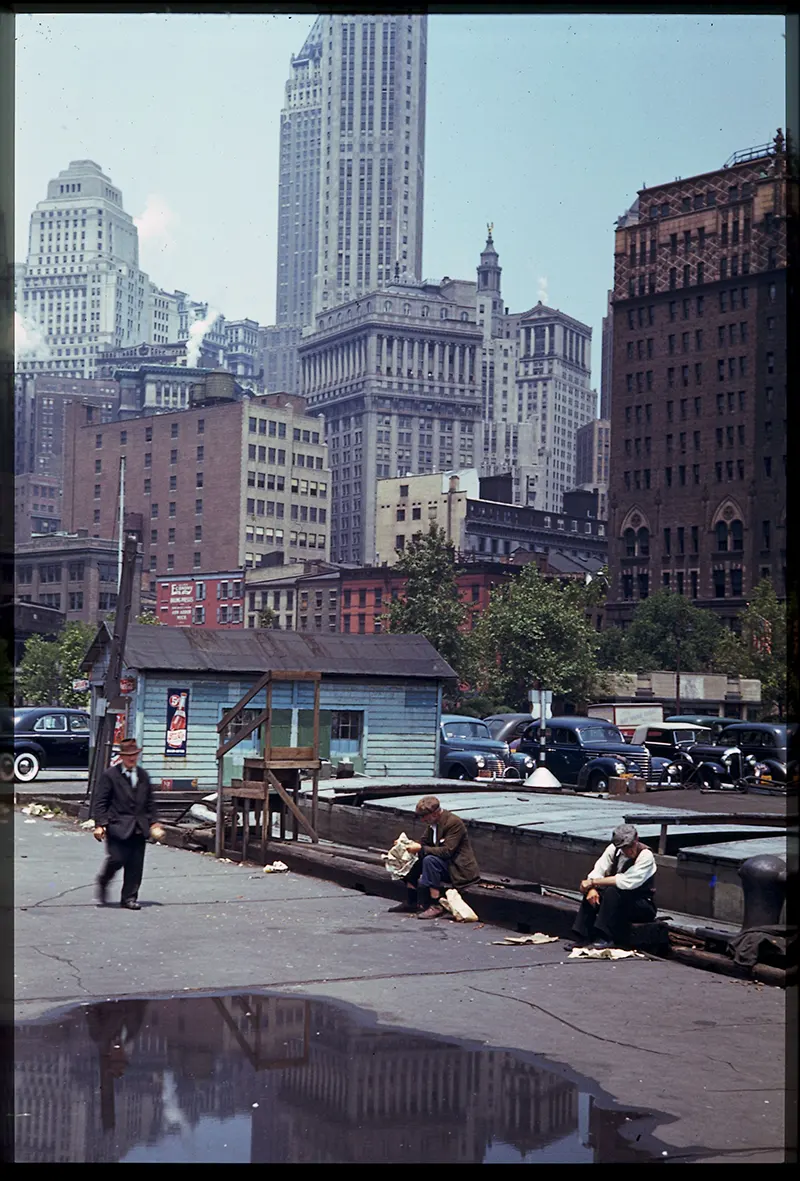
Skyscrapers Looking toward the Financial District from an East River pier. New York City.

Statue of Liberty from the Battery New York harbor.
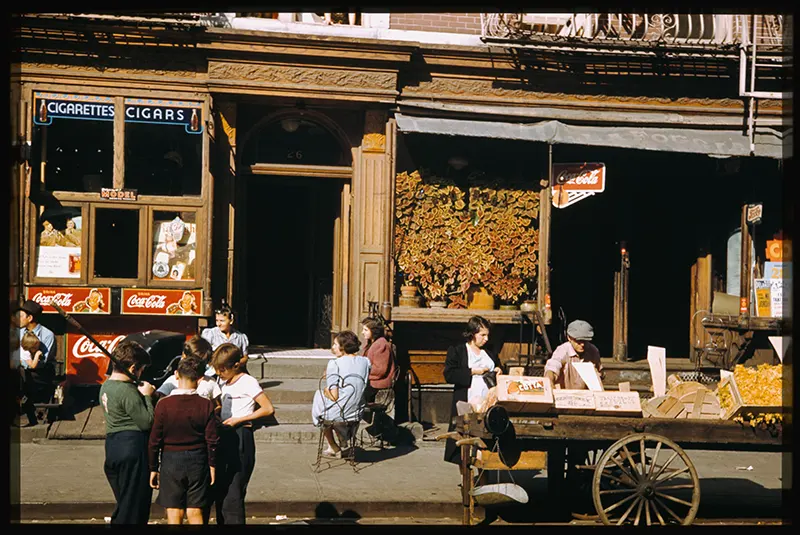
Stores near the corner of Broome St. and Baruch Place, Lower East Side. New York City.

Street in New York’s Chinatown, 1942.

At City Hall Square New York City.
(Photo credit: Charles Weever Cushman / Indiana University Archives).


